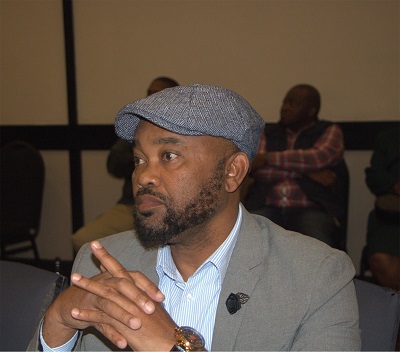By Thoboloko Ntšonyane
MASERU- The Minister of Natural Resources, Hon Mohlomi Moleko on Monday convened the open public mining debate where heated discussions ensued.
These debates, the Minister said, were a result of the recent challenges staged by the leader of Basotho National Party (BNP), Hon Machesetsa Mofomobe.
The event saw passion from both sides wherein the Minister showed that the mines are making a huge economic contribution in the country through royalties and levies whereas opponents say they are left to flout some of the mining and environmental regulations as stipulated in the legal instruments.
The debates had attracted participation of MPs (Members of Parliament), mining representatives, Basotho business interests’ representatives, civil society actors, artisanal miners, business community, youth and government representatives among others.
Among the debated issues were the National Beneficiation, Mine Compliance and Minerals Act, 2005, Mines and Mineral (Amendment) Act, 2002, Artisanal Miners, and Tax.
Hon Moleko mentioned that the country has not contributed much money to the mines; however, mines play a significant role in contributing to the government’s fiscus.
He also said both mines and the Lesotho Highlands Development Authority (LHDA) generate substantial income for the country, yet they are currently “under attack”.
He asserted that the government has a fair agreement with the mines. He questioned, “We have good quality diamonds, low volumes, why would somebody say this deal is bad?”
The Minister said last year, Letšeng Diamonds remitted M365 million in royalties, and boasted to the tune of M600 in dividends wherein the government received a share of M180 million, and the mine M420 million.
Hon Moleko said there are leases that Basotho can apply for. He said they want to level the playing field for Basotho for ownership.
The Minister said they are striving for 100 percent local ownership of the mines.
Lesotho mines are owned by foreign companies and are known to produce best quality diamonds. The government boasts on average 30 percent shareholding.
Basotho National Party (BNP) Leader who is also an MP Hon Machesetsa Mofomobe accused the Minister of being a “mouthpiece” of the mines saying he talks as though he is a beneficiary.
“I would have expected a patriotic tone from you,” he charged. Murmuring from where he was sitting at the back, Mofomobe said the Minister is “captured”.
Mofomobe said the country needs deals to enable it to maximize benefits.
He added: “We need policies that favor us to maximize beneficiation “.
BNP proportional representation (PR) had also written letters to Australia Securities Exchange to take action against Lucapa Diamonds Limited, a company that runs Mothae Mine requesting the Security Exchange to “thoroughly investigate the actions of Lucapa Diamonds ” as far as compliance with the country’s mining and aviation regulations are concerned.
Similarly, he penned a letter to the London Stock Exchange to take action against Gem Diamonds and Firestone Diamonds for allegedly flouting mining and aviation regulations.
One of the participants, Ramahoana Matlosa asked the Minister on whose side it was?
He argued that there are people who do not want to implement the provisions of the laws governing the mines and minerals.
Matlosa charged that the foreigners are exploiting the resources of this country.
Tsikoane Peshoane, a prominent figure in civil society, confronted the Minister of Natural Resources, asserting that he sent a letter two months ago to initiate a discussion regarding compensation matters and enhancing local benefits for mining communities. However the Minister did not respond to this communication but replied during the debates saying he is open to engagements with the civil society.
Advocate Teboho Mojapela, the MP for Motete, argued that the mines have a detrimental impact on the lives of Basotho residing in neighboring communities.
He emphasized that the contamination of water sources in these areas is a critical issue, and suggests that the benefits of mining should be carefully considered alongside these challenges.
A prominent tourism enthusiast, Bokang Kheekhe said indigenous are not benefiting as purported. He said some of the big beneficiaries stay in South Africa and hardly ever mines announce calls for the service providers that locals can supply them with.
Investigative journalist and the author of ‘Pollution, Profits and the People ‘, Pascalinah Kabi said contracts entered into by the government and the mines are mired in a lot of secrecy.
“Mining Lease Agreements must be easily accessible by host communities, their representatives, the media, and everyone with keen interest in mining [and] environmental issues. This secrecy must be a thing of the past,” she said.


